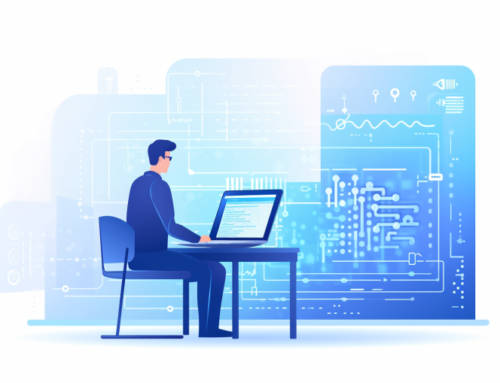When we look back, AI tools weren’t accessible to the public. Even most of the tech evangelists couldn’t completely think the way the transformation would happen. Then came the sudden revolution in November 2022 – ChatGPT. Every organization realized the power of human-machine interaction that can transform every industry including every technical and technological function. Now, the question is – Does the rise of AI change the way we build teams? As it’s a transformational in which we operate for global unicorns, let’s deconstruct on how AI and offshoring can impact organizations who are shifting their operations to overseas.
AI and offshoring: A revolution for tomorrow’s tech ecosystem
AI’s evolving role in offshoring
Artificial Intelligence (AI), an idea birthed in the Dartmouth Summer Research Project in the 1950s, has transcended its theoretical origins. Today, it permeates multiple facets of our lives, especially in the realm of offshoring—a model where businesses shift specific functions or processes to external companies in another country. With applications ranging from intelligent talent matching to advanced cybersecurity measures, AI is revolutionizing how tech leaders approach offshoring.
Revolutionizing talent recruitment
The primary reason companies engage in offshoring is to tap into specialized skill sets that are not readily available locally. While offshore destinations offer a plethora of talent, sifting through it to find the perfect match for specific company needs is often like searching for a needle in a haystack. Enter AI.
Tools like Paradox and Fetcher are leveraging AI algorithms to scrutinize job requirements and candidate profiles, thereby automating the otherwise cumbersome process of talent acquisition. This not only speeds up team building but ensures that the right people are put in the right roles.
Shaping the future of training and knowledge transfer
For an offshore relationship to flourish, ongoing communication and training are pivotal. It’s not enough to onboard new engineers; you must also cultivate them into integral team members familiar with your company’s unique processes and workflows.
AI-based training platforms offer the perfect solution. They allow for customized learning paths, performance tracking, and even adapt the training modules based on individual learning curves. AI is becoming the cornerstone of efficient knowledge management in offshore setups.
Safeguarding data against cyber threats
One of the longstanding apprehensions surrounding offshoring is the potential risk to data security. However, AI is actively allaying these fears. By employing sophisticated algorithms for real-time threat monitoring, AI drastically minimizes the room for human error and helps to secure sensitive data and intellectual property like never before.
Limits of AI: Unpredictable human factors
While the capabilities of AI are awe-inspiring, it would be naive to overlook the human element. AI lacks the innate ability to make complex decisions that involve experience, intuition, and an intricate understanding of cultural, legal, and regulatory landscapes. Additionally, qualities like empathy, trust, and effective communication remain solely human domains, essential for nurturing any offshore partnership.
Navigating the terrain of unpredictability: AI and offshoring
AI is algorithmically programmed to learn from existing data. However, its Achilles’ heel lies in its inability to adapt to unprecedented situations or rapidly changing market conditions. This is where the human component stands unparalleled. Skilled offshore partners bring with them years of experience, allowing them to maneuver through unexpected challenges with unparalleled agility and finesse.
So, will AI replace the human element in offshoring? The consensus here is an emphatic no. While AI offers game-changing capabilities, it cannot and should not replace the complex web of human interactions that make offshoring successful. Businesses that ground their operations in a culture centered around people are the ones that will thrive in this symbiotic relationship between AI and offshoring.
AI is not a competitor but a collaborator that enhances the offshoring model. It offers unparalleled efficiencies and insights but does not negate the need for the human touch. As we advance further into this digital age, companies that best marry these two elements—AI and human skill—will set the benchmark for success in offshoring and beyond.


